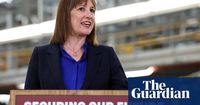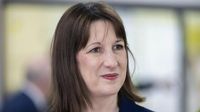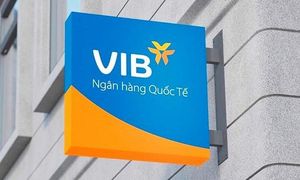Rachel Reeves, the UK Chancellor, is currently navigating a complex landscape of international trade negotiations during her visit to Washington, D.C., where she is attending the International Monetary Fund’s (IMF) spring meeting. As she prepares for critical discussions with U.S. Treasury Secretary Scott Bessent, Reeves is advocating for a trade framework that prioritizes the security and prosperity of working people. This visit comes against the backdrop of significant economic challenges, including recent tariffs imposed by President Donald Trump that have affected trade relations between the two countries.
On Thursday, April 24, 2025, Reeves addressed foreign finance ministers, emphasizing the need for global trade to provide security for working people. "The world has changed and so must we. We are in a new era of global trade, and in that new era we need a system that provides security for working people, stability for businesses, and prosperity for national economies," she stated. Her remarks were aimed at fostering a cooperative spirit among the G7 and G20 finance ministers, as they discuss the future of the global economy.
The Chancellor's visit is particularly timely, given that earlier this month, President Trump imposed a 10% import levy on goods and a 25% tariff on steel, aluminum, and cars. These tariffs have been a source of contention, and Reeves is determined to negotiate a deal that could exempt the UK from these punitive measures. She expressed optimism that "there is a deal to be done" between the UK and the U.S., despite acknowledging the complexities involved in the negotiations.
Reeves has made it clear that while she is open to discussions about reducing trade barriers, she will not compromise on essential standards. This includes maintaining strict food safety regulations, particularly regarding agricultural imports from the U.S. In an interview with Newsmax, she reiterated, "We’re not going to dilute British standards as part of a trade deal," reflecting her commitment to uphold the UK’s safety standards amidst pressure from the U.S. administration.
In addition to her discussions on tariffs, Reeves is also focused on broader economic cooperation, highlighting the importance of strong multilateral institutions and tackling excessive global trade imbalances. "To deliver this, we need to do three things: tackle excessive global trade imbalances, reduce barriers to trade, and promote strong multilateral institutions," she asserted during her speech.
The UK government is currently on a charm offensive in Washington, seeking to strengthen ties with American officials and business leaders. Lord Mandelson, the British ambassador to the U.S., is hosting a gathering at the British embassy, aiming to foster goodwill and facilitate constructive dialogue between the two nations. As part of this initiative, Reeves has engaged with Trump’s favored media outlet, Newsmax, to communicate her vision for a mutually beneficial trade relationship.
However, the path forward is fraught with challenges. The Trump administration has made it clear that it expects concessions from the UK, including potential reductions in food standards. Reports suggest that U.S. demands may include lowering tariffs on American cars to as low as 2.5% and relaxing regulations on agricultural products, which could provoke backlash from British consumers and lawmakers.
Reeves is acutely aware of the political ramifications of these negotiations. She is under pressure to deliver positive outcomes that will reassure the British public, particularly in light of the economic turmoil triggered by Trump’s tariffs. The IMF has recently reported a “major negative shock” to the global economy due to these tariffs, prompting Reeves to navigate these discussions with caution.
In her preparations for the meeting with Bessent, Reeves has emphasized the interconnectedness of the UK and U.S. economies, noting that a million Americans work for British firms. This economic interdependence is a crucial factor in her negotiations, as she seeks to build a trade deal that benefits both nations. "Our economies are closely intertwined, which is why I believe that there is a deal to be done between the UK and the US," she remarked.
Despite her confidence, Reeves has tempered expectations, acknowledging that significant breakthroughs may not be immediate. She stated, "I’m not going to rush into anything," suggesting a deliberate approach to ensure that any agreement reached aligns with the UK’s long-term interests.
As the negotiations unfold, the UK government is also considering offering concessions, such as reducing the digital services tax on U.S. tech companies, in hopes of securing a favorable deal. However, Reeves has made it clear that the safety and standards of British products will not be compromised in the pursuit of trade agreements.
The next few days will be critical for Reeves as she engages with her counterparts in Washington. With the backdrop of global economic uncertainty and the complexities of negotiating with the Trump administration, she is poised to make significant strides in establishing a trade framework that prioritizes the needs of working people while safeguarding British interests.
As the UK approaches local elections in the coming week, the outcomes of these negotiations may also influence domestic political dynamics. The Labour Party, under Keir Starmer’s leadership, faces scrutiny over its economic policies, and any positive developments from Reeves’ trip could bolster the party’s standing ahead of the elections.
In summary, Rachel Reeves’ visit to Washington represents a pivotal moment for UK-U.S. trade relations. With her commitment to securing a fair and equitable trade deal, she aims to navigate the challenges posed by the current political climate while advocating for the interests of British workers. The outcome of her discussions with Scott Bessent and other finance ministers will likely shape the future of economic cooperation between the two nations for years to come.





